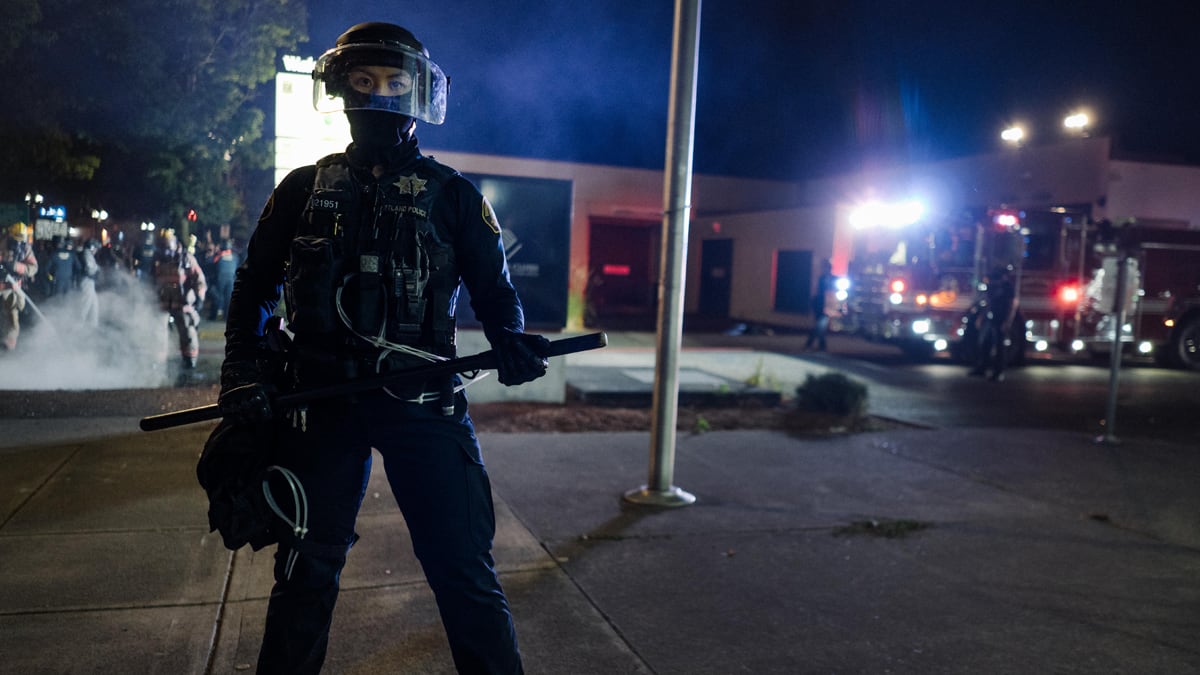WW presents "Distant Voices," a daily video interview for the era of social distancing. Our reporters are asking Portlanders what they're doing during quarantine.
Like many a protester, Ted Wheeler finds his path forward blocked by police.
The Portland mayor wants to be reelected to a second term in November. The single issue most likely to derail that ambition? His handling of policing, an issue where he can please no one.
More specifically, he has to decide how he will instruct the cops on using force to subdue the several hundred protesters who arrive at police precincts most nights. On Thursday, Wheeler told the Police Bureau to cease using tear gas on protesters. The bureau formally responded with a public rebuke of the directive.
Public opinion isn't much of a guide. Portlanders' view of protesters is nearly as polarized as views in the rest of Oregon, as a survey showed today. (Wheeler's own leadership received low marks.)
Related: Most Oregonians Think Portland Protests Are Violent and Counterproductive
Part of the reason why Wheeler is disparaged by both political bases is that he is willing to curtail the police, but only to an extent. He voted to eliminate the bureau's Gun Violence Reduction Team, but questioned that decision when homicides spiked in July. He has championed unarmed social workers responding to mental health crises, but the program has yet to launch.
In an interview this week, we asked Wheeler about both these policy decisions. In this clip, he discusses them—and why he won't hand the Police Bureau over to Commissioner Jo Ann Hardesty, who has repeatedly asked for it.
One note: Wheeler says in this clip that he'll check how many officers have been taken off street duty and placed on administrative jobs while their conduct toward protesters is being investigated. His office did get back to us with a number: three.

